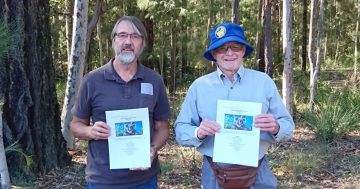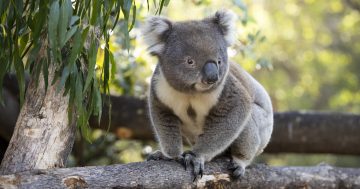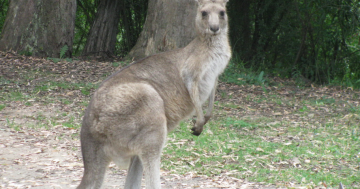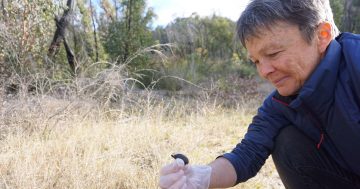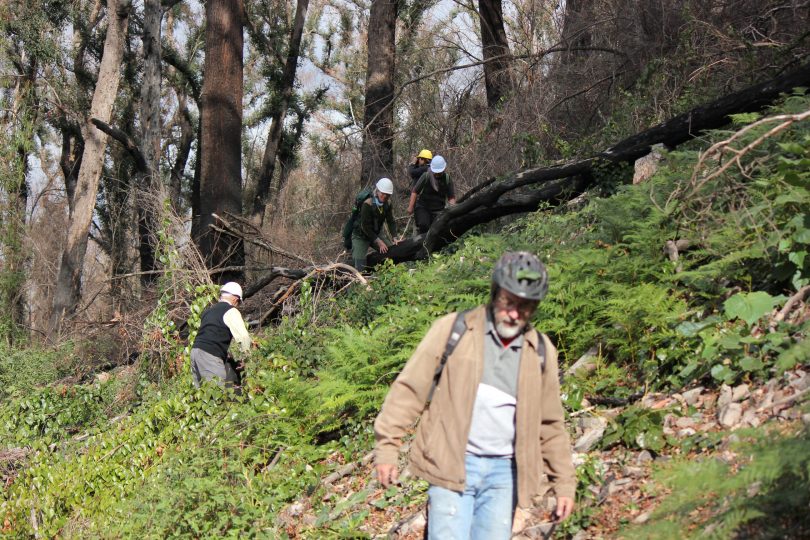
Researchers at work in the fire-blackened bush in the Eurobodalla. Photo: Eurobodalla Koala Recovery Project.
As Australians celebrate National Tree Day today, a Eurobodalla researcher is urging landowners to consider planting a ‘koala tree’ to help the special native Australian animal.
Dr Keith Joliffe is the organiser behind the Eurobodalla Koala Recovery Project and he has spent a decade researching koalas in the region.
“Many people mistakenly believe koalas have been extinct for decades in this area,” he said. “However, up until the 2019-2020 bushfires, we tended to get a sighting once every year or two.
“Koalas were definitely sighted in Bodalla State Forest in 2020, and were also seen in the East Lynne area right after the 2019 Currowan bushfire.”
However, for koalas to thrive in the region they need the appropriate habitat: koala trees.
For householders with space, Dr Joliffe said there are a number of options for growing trees.
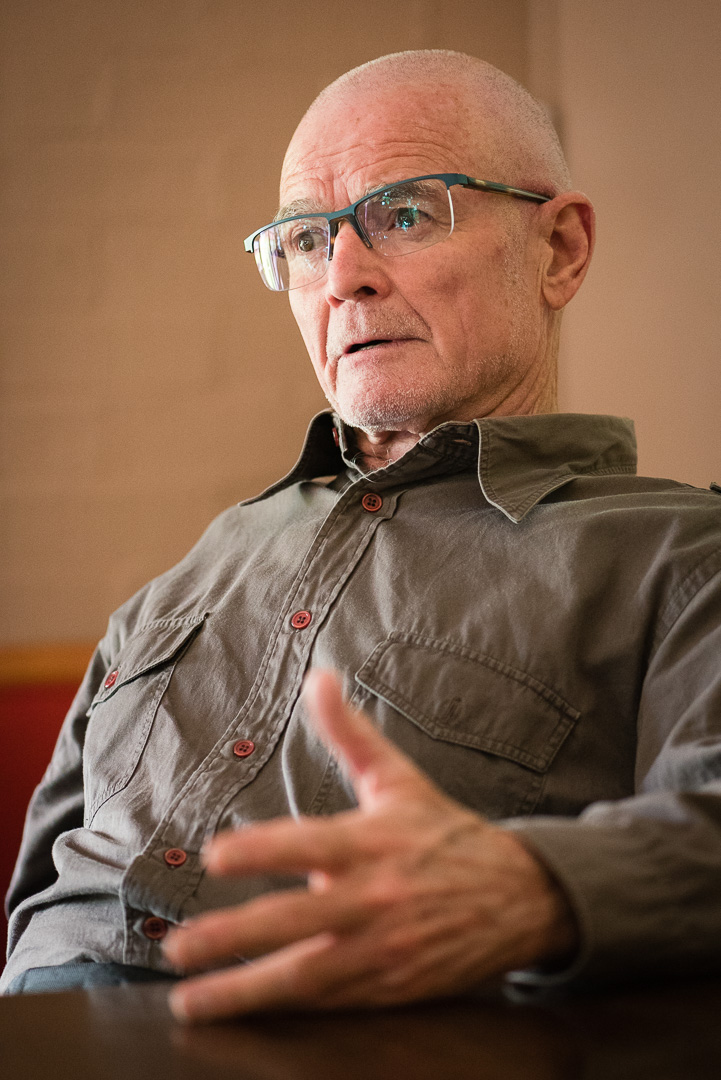
Dr Keith Joliffe. Photo: Eurobodalla Koala Recovery Project.
“On lower spots with better soils and moisture, try forest red gum, woollybutt, coast grey box or Maiden’s gum,” he said.
“On slopes with well drained, less fertile soils, try red ironbark, yellow stringybark or white stringybark.
“For bush block and acreage owners, the priority is connectivity. Create a natural corridor, especially along a creek line – if you have one – and plant the koala trees to link your existing vegetation to your neighbours.”
Dr Joliffe said his group’s surveys not only looked for koalas, but also for the feed trees and habitat needed to support them.
“It’s time to move to a Eurobodalla koala revival/rewilding emphasis,” he said.
“Koalas equal big tourist dollars, and ecotourism is a growth industry. But we’ve reached the point where we need urgent proactivity. Business-as-usual is no longer an option if we care about having koalas in Eurobodalla.
“Managed rewilding of the urban fringe and alluvial agricultural areas should probably be the emphasis, but remote public forests remain the safety valve and are crucial for connectivity.”
Dr Joliffe said the volunteer Eurobodalla Koala Recovery Project will move into a new phase involving more advocacy and rehabilitation activity while still maintaining its ongoing research program.
Between 2012 and now, Dr Joliffe and his team of around 30 volunteer citizen scientists have conducted 55 surveys on private Eurobodalla land, and with the help of local environmental group Coastwatchers received a Federal Government grant to conduct 10 surveys of the Deua National Park, Moruya State Forest and Dampier State Forest.



